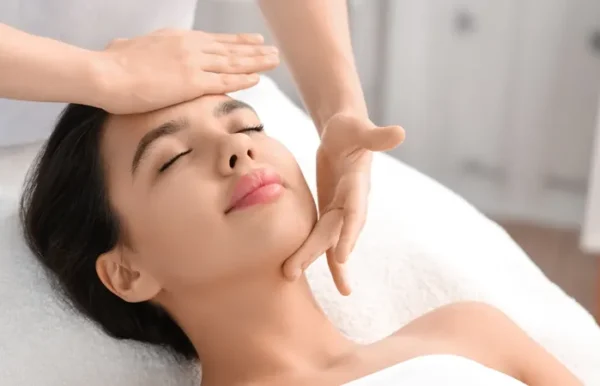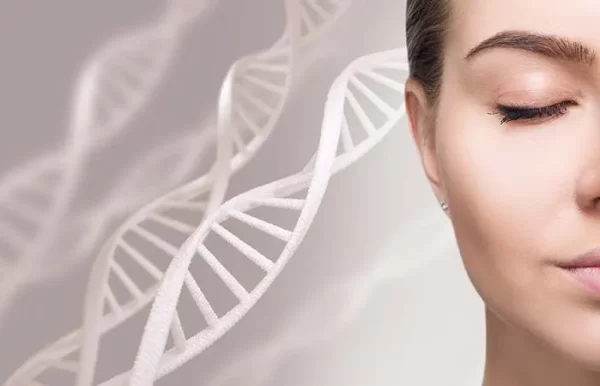Peptides and Skin Care
Because you want to keep your skin in the best condition, it’s important to have a good regimen. If you’re looking for anti-aging benefits like eliminating wrinkles and fine lines, treating crow’s feet, and toning/brightening the skin, there are many compounds which will have an effect. One of the most effective products that one can use are Peptides. Consequently, this guide will review the reasons why peptides are important in skin care.
What are Peptides?
Peptides are chains of amino acids derived from proteins in the skin. In addition, there are also manufactured synthetic peptides which are applied topically. They have an impact on the production of additional collagen and elastin, which is why they have anti-aging properties. (1)
Some peptides are also very hydrating for the skin, providing extra moisture. This prevents dry skin and also helps with anti-aging. There are several different types of peptides, some with other capabilities and benefits.
Let’s consider what peptides actually do for the skin.

How Peptides Help Skin?
There are amazing anti-aging benefits to peptides in skincare. It’s beneficial to use peptides on your skin, especially as one gets older. With age, the amount of collagen and elastin in our skin diminishes and this can lead to (among other things) sagging skin. Peptides are chains of amino acids which initiate the production of additional collagen. (1)
The extra collagen makes the skin firmer and more elastic. As such, this can smooth out wrinkles and frown lines that form with time, and even out your skin tone.
There are other types of peptides which function by slowing down the movement of the facial muscles, making it appear as if there are fewer wrinkles and lines. Some of them have antimicrobial properties which kill bacteria on the skin and facilitate the healing of wounds. Others provide moisture to dehydrated skin and effectively promote rehydration.
What Peptides do for Skin?
There are numerous benefits of Peptides, including the following:
- Peptides make the skin firmer.
- They improve the flexibility of the skin.
- They enhance the skin barrier and hydrate the skin.
- They reduce wrinkles on the forehead and expression lines.
- Peptides even out skin tone, fix under-eye bags and dark circles under eyes.
- Some peptides can effectively treat acne.
- They can repair damage to the skin and heal wounds.
- They can fade areas of pigmentation.
Are Peptides bad for your skin?
There are a few side effects such as skin sensitivity, rash, and itching. Although peptides are extremely beneficial to the skin, they do have some disadvantages:
- Many peptides are quite expensive.
- Some people have an allergy to peptides, although it’s not common.
- Not all peptides are helpful for the skin.
What Peptides are Good for Skin?
Not all peptides are the same. There are 5 different types which have slightly different functions and benefits. This is something to take note of when you’re deciding which skin care product is suitable for you such as Advanced Dermatology, Meaningful Beauty, and The Ordinary Skin Care. Take note of the names of the collagen peptides in the ingredients list and check which class they fall under.
Signaling Peptides – These peptides initiate the production of collagen, elastin and hyaluronic acid in the skin. Collagen makes the skin firmer, which smooths out lines and wrinkles. Elastin improves the flexibility of the skin. Hyaluronic acid holds huge amounts of moisture, which gives the skin hydration and volume. Additionally, it helps to eliminate wrinkles and lines. (2)
Carrier Peptides – These peptides function by transporting key minerals like copper and manganese to the skin, to help heal wounds and repair damage to the skin barrier. They also assist in processes that require enzymes in the skin. (2)
Enzyme-Inhibiting Peptides – These peptides function to inhibit the enzymes that cause the skin to get darker, as well as those that cause it to become degraded. Therefore, they have effective skin-lightening properties. (2)
Neurotransmitter-Inhibiting Peptides – These peptides have the job of inhibiting key brain neurotransmitters, causing the muscles in the face to slow down their contractions. This eliminates the appearance of wrinkles and fine lines and it can prevent or slow the development of new ones. (3)
Antimicrobial Peptides – These peptides have potent antimicrobial properties, which allows them to kill damaging bacteria on the surface of the skin and in the pores. These are the best peptides for treating acne, and they are also highly effective at healing wounds. In addition, they can also increase immunity. (4)
How to Select Peptides in Skin Care Products
There’s more than one way to get the peptides you need to enrich your skin. These include:
- Anti-Aging Creams and Serums – There are a number of organic creams or serums on the market which have anti-aging benefits for the skin e.g. Arbonne, La Mer Cream, Obagi Skin Care, Instantly Ageless, and No. 7 Serum. Most of them include peptides as an ingredient if they are a quality product. Before you use a new peptide cream or peptide serum, an evaluation by a dermatologist would be extremely helpful.
- Supplements – There are many supplements for the skin which include peptides. Check the level of peptides included before you make your purchase. Each product uses a different dose. If there is no amount listed, look for another product because there may be very little included.
- Injections – Peptide injections are very effective, but they are the most invasive peptide treatment. They’re very helpful at diminishing the signs of aging, healing wounds, and balancing skin tone. Nevertheless, injections are more likely to lead to an allergic reaction than creams or supplements.
SEE ALSO – SIO Beauty and Image Skin Care
People Also Ask
Q: Where Do Peptides Come From?
A: They exist naturally in our skin. Sometimes manufactured synthetic peptides are added to products by the skincare brands like Perricone MD, Clinique, Nerium and Jeunesse, and they are also highly effective for the skin.
Q: Who Needs Collagen Peptides?
A: Collagen peptides are useful for people who have approached middle age and are developing some of the signs of aging like wrinkles and lines. Nonetheless, they are enriching to the skin for everyone, so younger people can certainly use them too.
Q: Is Peptide Good For Your Face?
A: Extensive scientific research has proven that it can support your skin on multiple levels, for example by firming, soothing and hydrating the skin.
Q: Can Peptides Cause Cancer?
A: No, collagen peptides don’t cause cancer. However, certain peptides are part of the treatment process for cancer patients. There’s evidence that, along with other treatments, it could be some help. (5)
Q: Can Peptides Irritate Skin?
A: It’s possible that you could have a reaction with peptides usage, most likely because you have an allergy. This is actually quite uncommon, but if it does occur make sure you stop using products with this ingredient. See a dermatologist if necessary.
Q: Can Peptides Cause Acne?
A: No, they do not cause acne and they can actually be an effective treatment for this condition. They do this by repairing damage to the skin barrier. Moreover, some peptides are anti-microbial so that they can kill harmful bacteria on the skin. (6)
Q: Will Collagen Peptides Cause Weight Gain?
A: No, it will not. On the contrary, there is evidence that peptides for weight loss can be helpful. A study published in Molecules found that peptides to lose weight can be an effective part of the treatment for overweight and obese people. (7)
The Bottom Line
Peptides are one of the most effective and transformative ingredients available for treating the skin. There are several types of peptides, which have slightly different functions.
Generally speaking, peptides increase collagen production, making the skin firmer and more elastic. This gets rid of under eye wrinkles and lines. However, they also repair damage to the skin, even out skin tone, kill damaging bacteria, lighten areas of pigmentation, and treat acne.
Before you try peptides on your skin, decide what type of product you want to try and which is most suitable for you – peptide cream, peptide serum or peptide supplement. Many skin care brands like Mary Kay, Murad, Proactiv, Rodan + Fields, and Mario Badescu include peptides in their products. Make an appointment with a dermatologist to discuss your options and find the one that is most suitable for you personally.
Up NEXT – Vitamin E for Skin and Argireline






 This article changed my life!
This article changed my life!
 This article was informative.
This article was informative.
 I have a medical question.
I have a medical question.

 This article contains incorrect information.
This article contains incorrect information.
 This article doesn’t have the information I’m looking for.
This article doesn’t have the information I’m looking for.